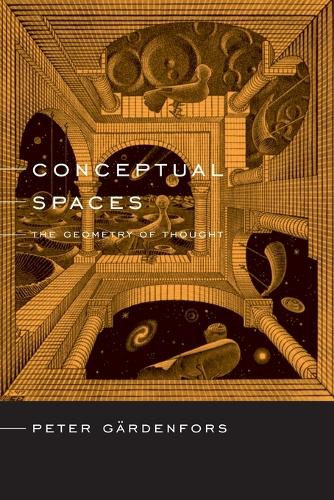
Conceptual Spaces: The Geometry of Thought
(Paperback)
Publishing Details
Conceptual Spaces: The Geometry of Thought
By (Author) Peter Grdenfors
MIT Press Ltd
MIT Press
30th January 2004
United States
Classifications
Professional and Scholarly
Non Fiction
153
Physical Properties
Paperback
318
Width 152mm, Height 229mm, Spine 14mm
431g
Description
Within cognitive science, two approaches currently dominate the problem of modelling representations. The symbolic approach views cognition as computation involving symbolic manipulation. Connectionism, a special case of associationism, models associations using artificial neuron networks. Peter Gardenfors offers his theory of conceptual representations as a bridge between the symbolic and connectionist approaches. Symbolic representation is particularly weak at modeling concept learning, which is paramount for understanding many cognitive phenomena. Concept learning is closely tied to the notion of similarity, which is also poorly served by the symbolic approach. Gardenfors's theory of conceptual spaces presents a framework for representing information on the conceptual level. A conceptual space is built up from geometrical structures based on a number of quality dimensions. The main applications of the theory are on the constructive side of cognitive science: as a constructive model the theory can be applied to the development of artificial systems capable of solving cognitive tasks.
Reviews
"This is a fearless book that casts a wide net around key issues in cognitive science. It offers the kind of coherent, unified view that the field badly needs." - Steven Sloman, Associate Professor, Cognitive and Linguistic Sciences, Brown University"
Author Bio
Peter G rdenfors is Professor of Cognitive Science at Lund University, Sweden. He is the author of Conceptual Spaces- The Geometry of Thought (MIT Press) and other books.
